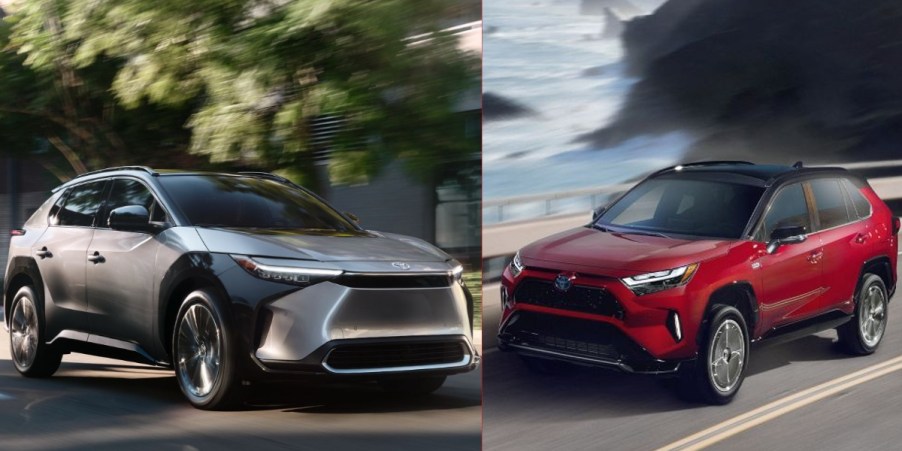
3 Reasons Plug-In Hybrid SUVs Are Better Than Electric SUVs in 2023
The electrification of the automotive industry has brought many new nameplates to the market. Now, consumers can choose between hybrids, plug-in hybrids, fully electric vehicles, and internal combustion engine (gas-only) vehicles. So, why do many drivers prefer plug-in hybrid SUVs over fully electric SUVs?
PHEVs are an easier transition from gas vehicles

Change is hard. Most drivers can’t wrap their heads around giving up internal combustion engine (ICE) vehicles entirely. Plug-in hybrid vehicles (PHEVs) are a happy medium between ICE and battery electric vehicles (BEVs).
Battery electric vehicle ownership comes with plenty of hurdles and hardships for drivers new to the EV scene. Charging can be a serious issue, especially with a lack of infrastructure in certain regions.
Making the switch from an ICE SUV to a PHEV SUV is a much smoother transition than jumping from an ICE SUV to an EV. Why? Because PHEVs are ultimately still hybrids, so there’s some familiarity with the powertrain itself and its functionality. EVs, on the other hand, are a whole different ball game.
Many view plug-in hybrid SUVs as safer than EVs

There’s no solid evidence to prove that PHEVs are generally safer than EVs, but electric vehicle recalls are far more frequent than PHEV recalls. Since electric vehicles rely more heavily on their batteries than PHEVs, they are more prone to overheating. Battery overheating can cause serious issues like immobility and, in some cases, dangerous fires.
Electric vehicles like the Chevy Bolt are stigmatized because of battery fire issues. Some consumers are downright terrified of EV ownership. Plug-in hybrid SUVs, however, seem like a much safer alternative.
Thus far, PHEV SUVs haven’t had many serious recalls over battery issues. Since many drivers perceive plug-in hybrid SUVs are safer than BEVs, they’re more likely to choose the former.
Plug-in hybrid SUVs are more practical than electric

Comfort and safety aside, the final reason that plug-in hybrid SUVs are a better choice than electric SUVs for some drivers is practicality. To consumers, practicality is no small matter in 2023. Inflation is putting a strain on spending for many average Americans. So, where your dollars go is important, and the last thing many consumers want to spend on is an unreliable vehicle.
Despite the success of popular electric SUV nameplates like the Tesla Model Y and Ford Mustang Mach-E, many drivers think EVs are still too impractical. Combine the lack of charging infrastructure in areas of America with infrequent charging stations and battery issues, and you get a perfect recipe for disaster.
Plug-in hybrids may still be too new and scary for some drivers, but those consumers can at least rely on the ICE component of those models. The mass adoption of EVs and the electric future are getting further and further away as the industry encounters growing pains.



